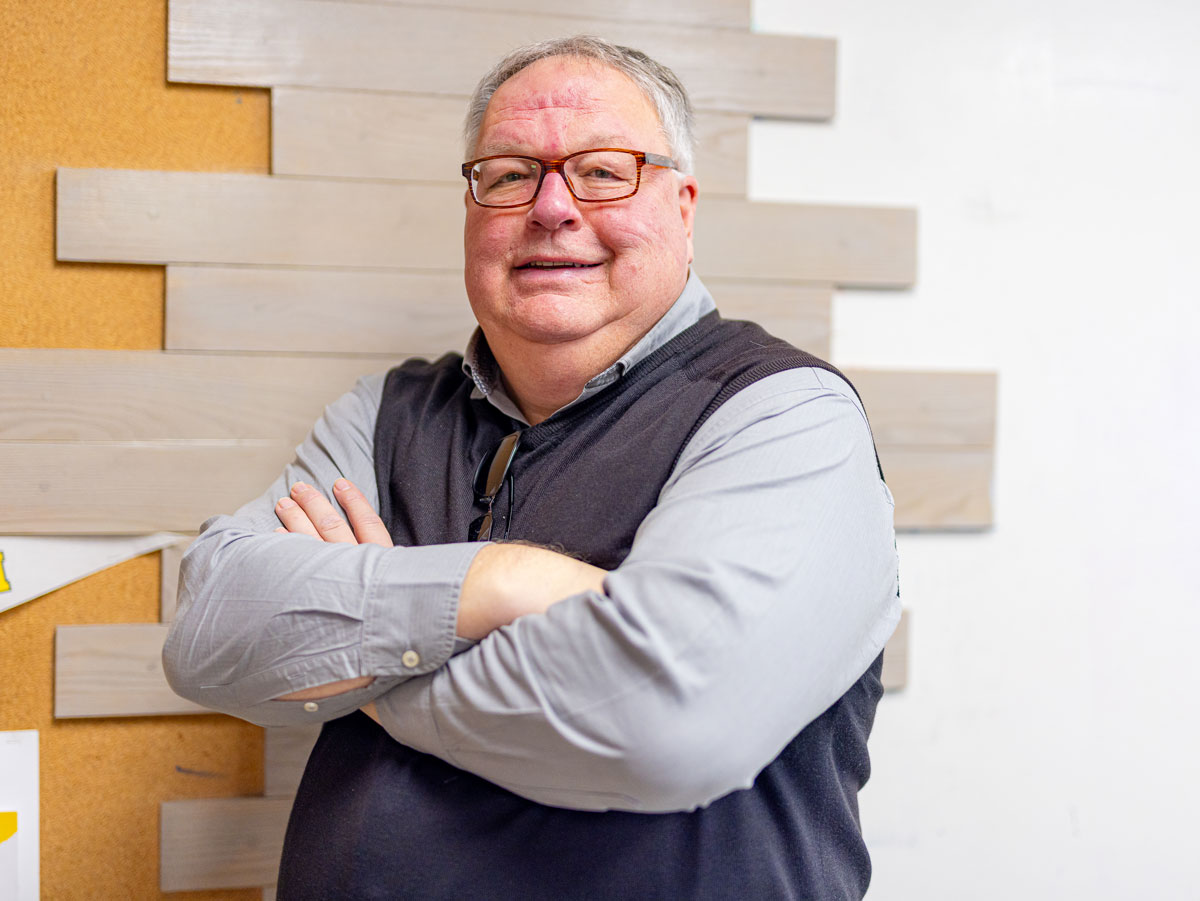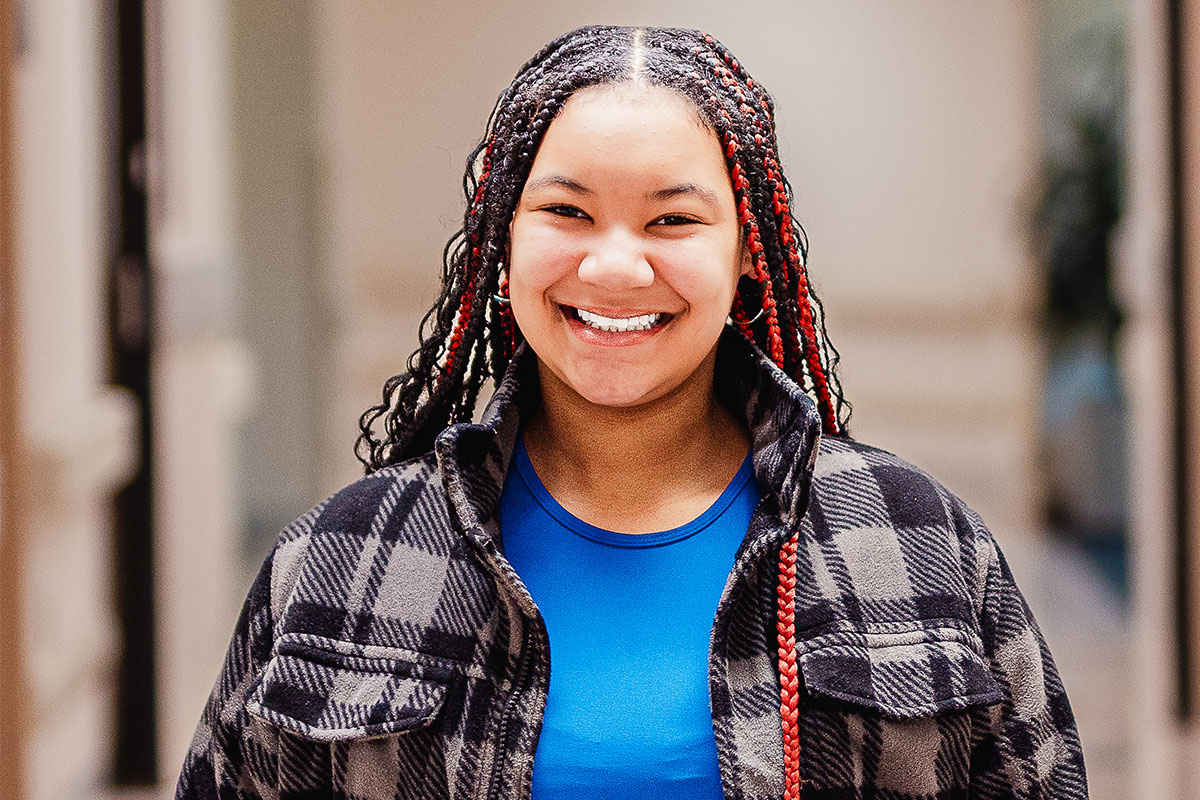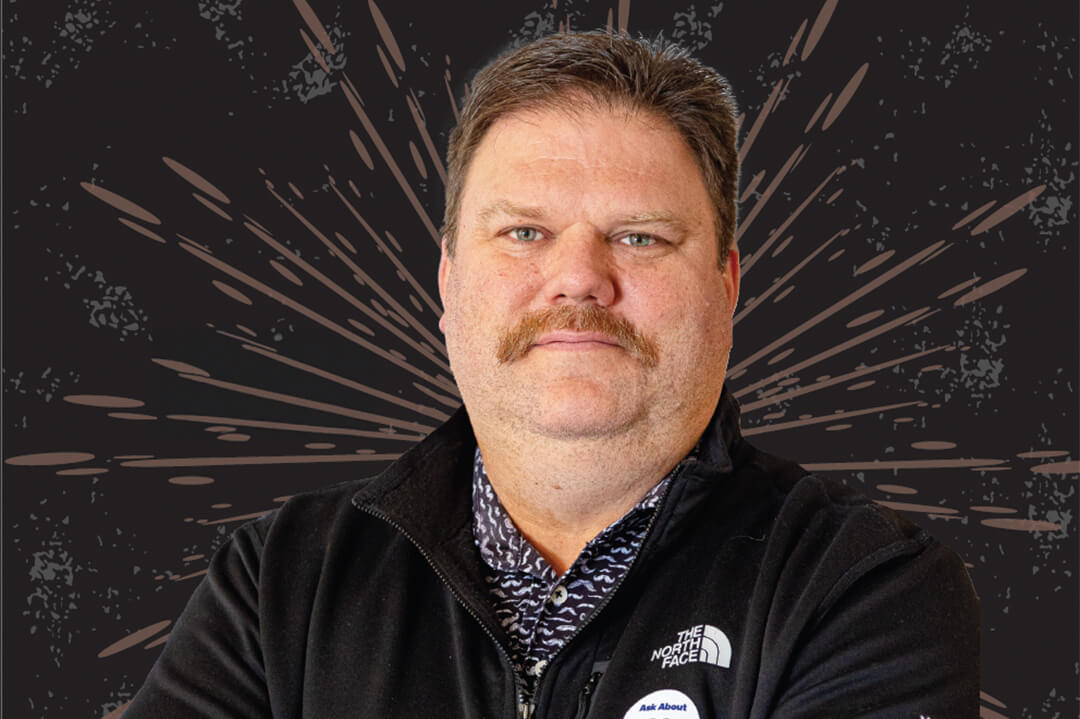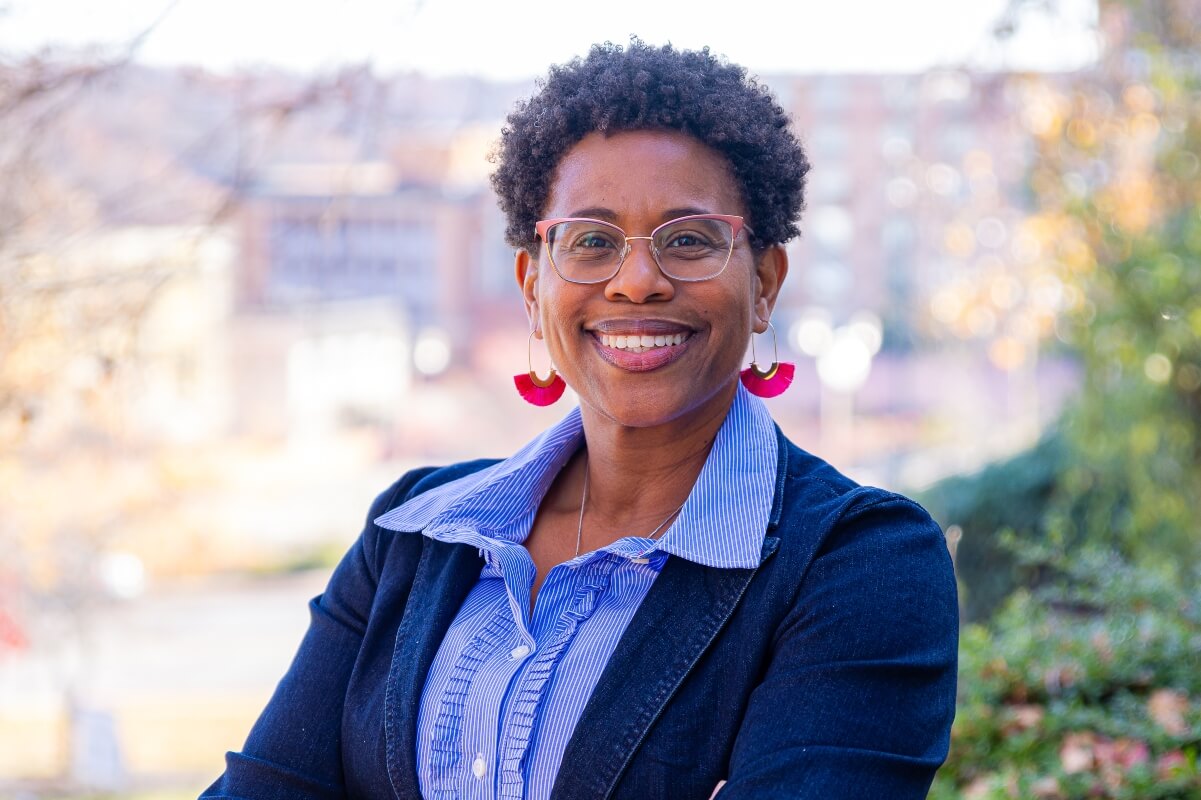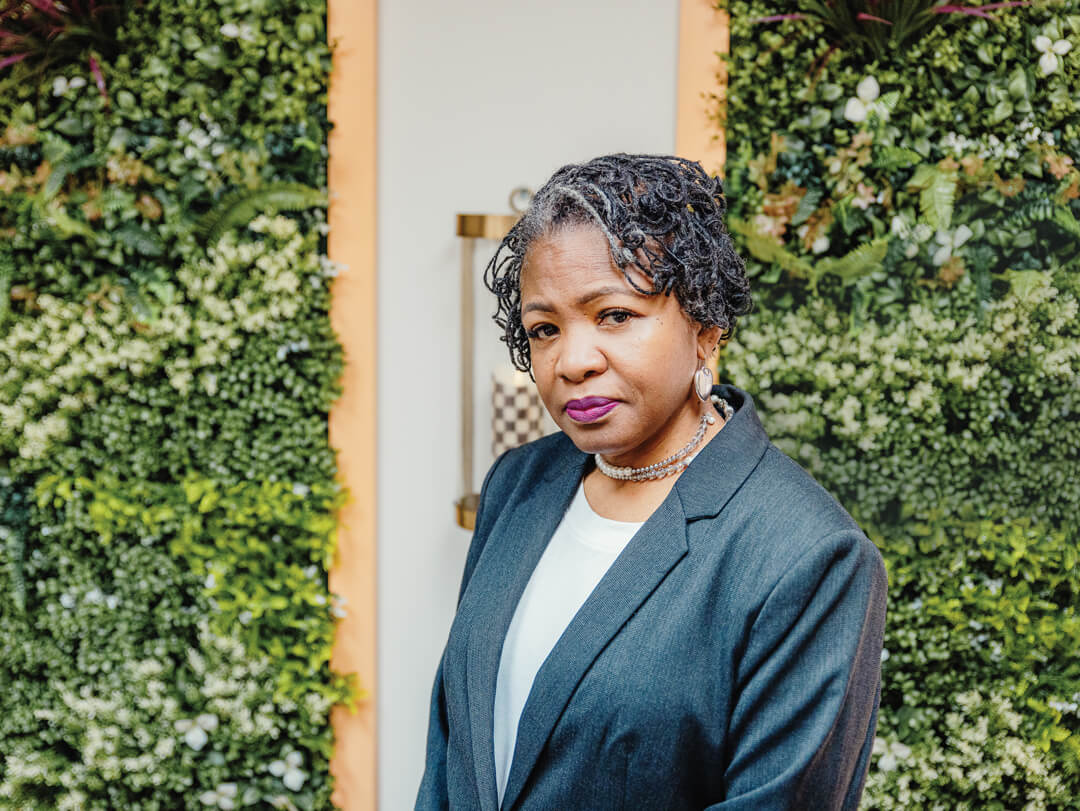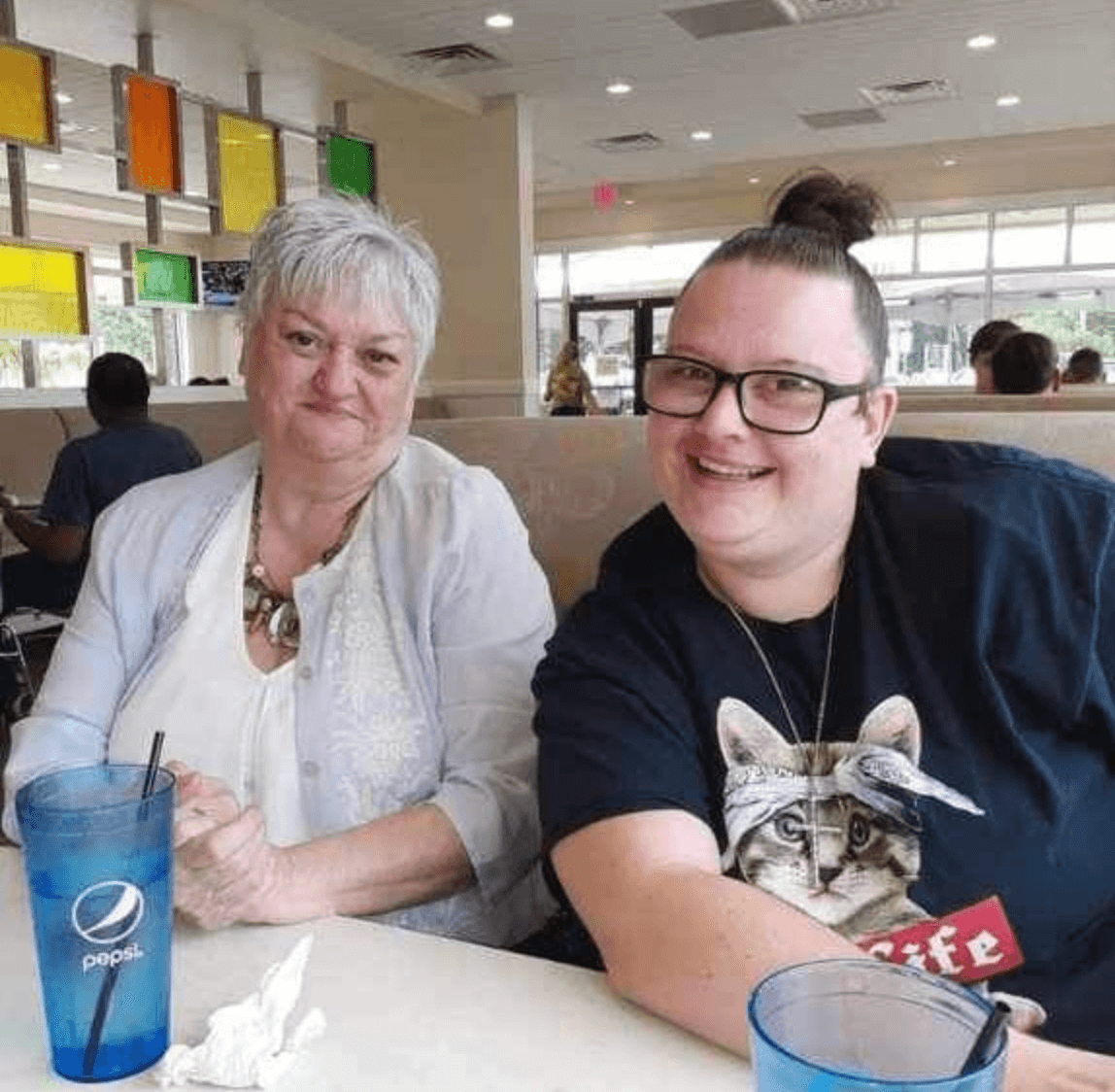VIRGINIA “GINI” Simmons grew up in Goode and graduated from Jefferson Forest High School. If those words were the sum of her story, her life could be considered typical for the Lynchburg area — but Gini’s life is far more unique.
Gini’s father is British, and her mother is German. Both parents moved to Lynchburg in the 1970s, where her father worked at the Meredith/Burda printing company. Gini explained that she learned both languages from childhood.
“Only English was allowed if it was homework or school or work-related.”
The rest of the time, Gini’s mother spoke to her kids in German. Things got even more interesting when Gini’s grandparents retired from England to the Spanish island of Ibiza. This opened the door for a third language. Gini said that when her family would visit her grandparents and go out to eat, her dad would speak English with his parents, and her mom would speak German with the kids as usual.

But at a restaurant, she said, “When the waiter would come, my dad would nudge me and say, ‘Order in Spanish’… So the waiter never really knew what language to approach the table with!”
What does the ability to speak three languages have to do with dementia care? For Gini, it’s what makes her Living Active Dementia coaching and training business unique. Gini’s health care education began when she obtained a bachelor’s degree in recreational therapy at Old Dominion University in Norfolk. She points out that recreational therapy is very wellness-focused in five areas: physical, mental, spiritual, emotional, and occupational.
When she entered the health care profession over 20 years ago, Gini also began to encounter patients with dementia. The nurses at one skilled care facility where she worked warned her that a particular male patient was aggressive or might curse at her. Gini said she entered the patient’s room and began talking with him. She found out that the man was confused and didn’t know why he was in the facility and why doctors and nurses seemed to be forcing treatments he didn’t understand.
“I kind of just acknowledged and validated what was going on.”

That conversation led Gini to a critical discovery in working with patients with dementia.
“It’s all about the person you’re talking to — where they are at, what they understand,” Gini explained.
She said it’s less about getting a patient to do something and more about getting to know them and understanding where they need help. Gini embarked on educating herself in the field in order to bring a level of compassionate care and understanding to patients and their families.
Gini is now a certified dementia practitioner and a certified trainer. As Gini grew her skills, her father pointed out that the rescue squad he volunteered for had no training to handle dementia patients. That led Gini to become a first-responder trainer, too.
Gini said her mission is “to share knowledge about dementia with those in the community through interactive and fun training.”

Besides training other professionals, the family group Gini finds herself working with the most is known as the “sandwich generation.” The sandwich generation represents families where the parents have young children at home but also bring in one or both of their parents (the childrens’ grandparents) to live with them because they cannot live independently. Gini said this can create a lot of generational stress.
Gini conducts a home safety assessment where the family can see changes they may need to make to the physical house for fall prevention, accessibility, and cooking safety. For the caregivers, Gini offers support services to help navigate doctor’s appointments, power of attorney arrangements, living wills, and other next-step directives that may come into play. In addition, she gets the person needing care involved in fun and sometimes goofy activities and games that bring mental and physical stimulation with the goal of staying independent longer.
When dementia sets in, causing an aging parent to need more direct care, Gini steps in to help families become better care providers and aid them in supporting the person with dementia. Gini offers classes on topics such as Alzheimer’s disease versus dementia, aging sensitivity training, communication basics, and changes with aging. She presents to social workers, case workers, first responders, and more.
“My goal is the quality of life. We need to make their lives as better — as happy — as possible.”
Gini is well on her way to doing just that. GN






